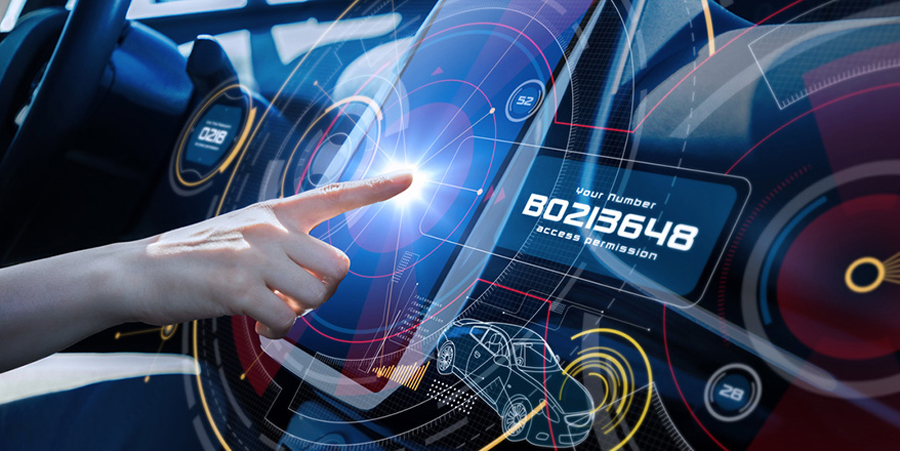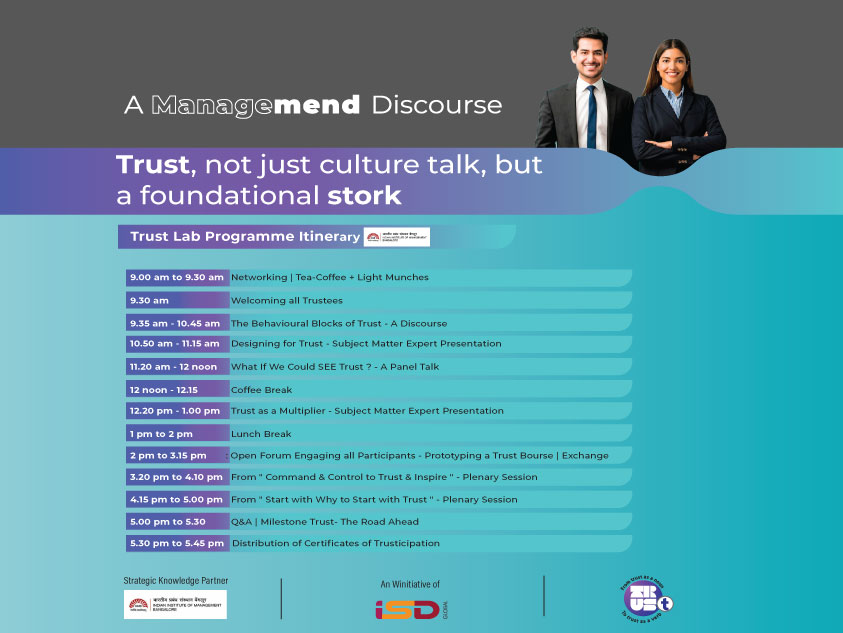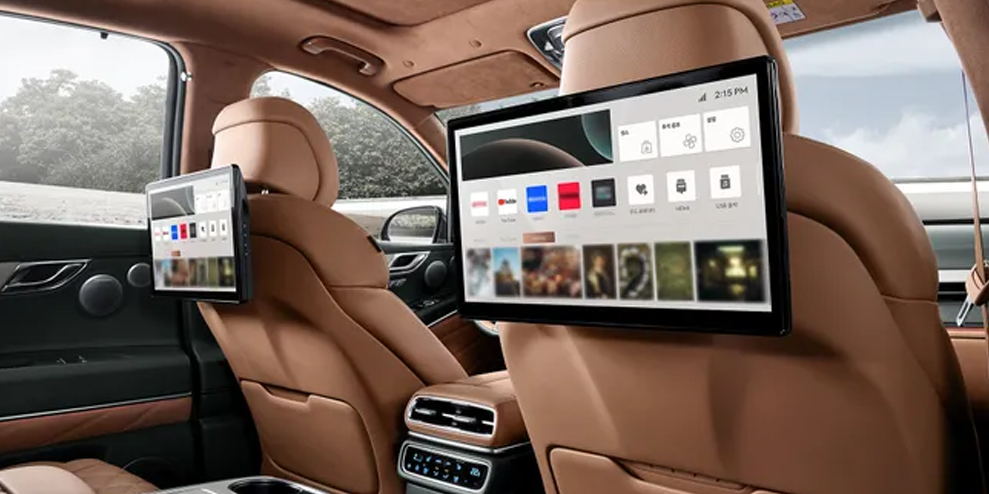Technology firms are the drivers of disruption across industries, but things will play out differently for automobiles, according to John Paul MacDuffie, Wharton management professor and director of the School’s Program on Vehicle and Mobility Innovation. Tomorrow’s vehicles will be built with electric, autonomous and mobility/connected features, and one would expect tech companies to dominate the automotive industry of the future, he noted. However, technology companies are not equipped to dislodge traditional automakers from the driver’s seat and have to learn to share the controls, he added.
“Maybe the initial stimulus is with the tech companies pushing into mobility, and the automotive companies having to react and respond,” MacDuffie said in an interview on the Wharton Business Daily radio show on SiriusXM. (Listen to the podcast above.) “But I question the narrative that tech automatically dominates all of these interactions going forward.” MacDuffie recently wrote an opinion piece on the subject in his debut column in Forbes magazine.
Secrecy and Control
For starters, technology companies are not naturally set up for partnerships with auto companies, according to MacDuffie. Typically, they don’t relish public visibility of their moves or ceding control in partnerships. Apple, for instance, is rumored to be working on developing its own car, but it is “very secretive,” and little is known about its plans, MacDuffie noted.
In fact, when rumors began in January that Apple is likely to sign an agreement with Korean automakers Hyundai and Kia to be its partner for manufacturing “the Apple car, or the iCar,” it pressed the brakes, he said. “Apple seemed so annoyed by [those rumors]that it immediately cut off the talks. Whether that means they’ve cut off any interaction with Hyundai and Kia forever, or just cut off the talks for now, is hard to say.”
“The automobile is very different from a lot of electronics gear. It’s a heavy, fast-moving object that operates in public space and is dangerous.”–John Paul MacDuffie
In any event, it may not be the easiest task for Apple to work with partners in the auto industry. “It’s not a simple matter for Apple or any prospective partner to figure out how to work together,” MacDuffie continued. “Apple is used to complete control, and they’re used to a contract manufacturing model where they design in California and they build in China with Foxconn. I don’t think that model is going to replicate for the automotive space.”
Having a car as part of the Apple portfolio was a dream of its late founder Steve Jobs, and Jony Ive, the former chief design officer at the company, was “even more of a car buff,” MacDuffie noted. “So these are dreams that go deep into Apple’s DNA. But that doesn’t mean that they won’t be pragmatic about some of these barriers as they encounter them going forward.”
Complexities in Manufacturing
Another set of imponderables for tech companies aspiring to be automakers relates to “the amazing complexity of designing vehicles to meet all of the constraints and requirements,” MacDuffie said. It is about not just “what customers want and need, and making products that are both practical and exciting,” but also about meeting safety and quality and emissions standards, and the like, he added.
The stakes in manufacturing vehicles are higher than what technology companies are accustomed to. “The automobile is very different from a lot of electronics gear,” said MacDuffie. “It’s a heavy, fast-moving object that operates in public space and is dangerous. It can kill people. It can injure people. It can damage property.”
In that setting, the automotive industry clearly faces complexities and responsibilities with which technology companies are not familiar. “Society, not just in the U.S. but around the world, has given the auto companies the responsibility of meeting those safety and quality requirements, and now increasingly environmental requirements,” said MacDuffie. “And that capability is not learned overnight. The auto companies probably aren’t thrilled that they have all of those responsibilities, along with all the legal liability. But having learned to do it perpetuates and maintains some of their value-adding ability in this space.”
For sure, technology companies will face challenges of their own in the auto industry. “Some of the privacy concerns that the big tech companies are facing certainly apply to the vehicle world,” said MacDuffie. He pointed to the threats of cyber hacking of vehicles, and concerns about the privacy of personal data as in where people move and what they do.
“We already give away a lot of that information to the tech companies, and maybe we’ll continue to do it when we take our phone to the car,” MacDuffie continued. “If the level of services ramps up and is increasingly activated from the vehicle, and more is being revealed about individuals, that’s definitely going to trigger some of those same privacy concerns.”
Tesla the Outlier
Unlike other technology companies, electric car maker Tesla invested early in manufacturing automobiles. Tesla has “done the very hard and long work to become an automaker in their own right,” MacDuffie noted. “Tesla partly proves the point that you have to master a lot of what the automotive companies have always mastered in order to be able to do it yourself.”
Even Tesla has “not enjoyed every moment of it,” according to MacDuffie. “It’s a long and hard road,” he said. “We’ve heard [Tesla co-founder and CEO] Elon Musk talking many times about ‘manufacturing hell’ and saying there’s nothing harder than mass producing at scale.” In a recent interview with auto manufacturing expert Sandy Munro, Musk said: “Prototypes are easy and fun, and then reaching volume production with a reliable product at an affordable price is excruciatingly difficult. Our production is hell.”
Even as some tech companies have ambitions of becoming automakers, not all of them are prepared to put in “all the hard work” that Tesla has invested in that endeavor, MacDuffie said. If the tech firms don’t take similar steps, they will be forced to work with existing automakers that bring that expertise, he added.
“Tesla partly proves the point that you have to master a lot of what the automotive companies have always mastered in order to be able to do it yourself.”–John Paul MacDuffie
At the same time, tech companies may not want to go it alone in auto manufacturing. “It is a very competitive industry, with fairly low margins,” said MacDuffie. “These tech companies are used to much higher margins. The uncertainty about the long slog to master the capabilities, and the low margins when you get there, will make them decide not to do it themselves.”
The Car of the Future
Future generations of vehicles will incorporate “electric combined with autonomous, combined with connectivity,” said MacDuffie. Fully self-driving vehicles will become a reality “further off into the future,” he added.
MacDuffie pictured much of those technologies being incorporated incrementally in vehicles. “Automakers with tech partners are going to still be probably the best suited to driving that,” he said. “It may be a question of which combination of a tech company and auto company jumps out into the lead [position].”
However, MacDuffie said he expected each of those relationships to be complicated. “They need each other. It’s not that they necessarily want to work together,” he noted. “The auto companies are not good at services and in many aspects of digital platform strategy, which the tech companies excel at. That’s part of why people assume the tech companies have a big advantage here. They’ll each bring what they’re good at, and they’ll struggle through to find a way to work together.”
Technology companies may prefer the model of contract manufacturing, MacDuffie said. Foxconn, which makes iPhones for Apple, recently announced a partnership with Los Angeles-based electric car maker Fisker to make the latter’s cars, he noted.
As vehicles are designed to be more connected and as self-driving technologies become more advanced, people will consume more and more services in vehicles, MacDuffie said. He pointed out that Waymo, which is Google’s autonomous vehicle arm, has said that instead of building cars, it would build “the software driver of the future,” and will work with multiple auto manufacturers to install that technology inside vehicles.
MacDuffie also visualized the possibility of Apple deciding to back away from overseeing the manufacturing of its own iCar to become a competitor in that space. “They would like to be the ones with the driver brain in the vehicles of the future, and then be able to connect passengers to all of the things in their ecosystem,” he said. “Maybe we will end up with a world like we have with phones, where we have iOS and Android competing. Maybe Google and Apple will compete for the vehicle operating system of the future.”
In that setting, a company like Apple would also have the flexibility to switch from one automaker to another. “The more they are providing the software for a vehicle, the more they would be able to potentially pivot and do that with a different manufacturer,” said MacDuffie. “But if they do engage a big automaker in designing a physical vehicle, it’s very tough to pull away from [that automaker]and restart. It’s not impossible. It’ll cost money. They’ve got money.”
This article first appeared in knowledge.wharton.upenn.edu



